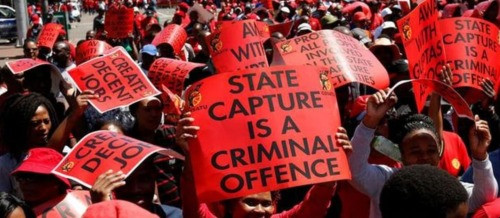More than half a century after the lowering of colonial flags, most African nations remain shackled—not by the old gunboat empires, but by new chains of dependency, corruption, and elite complicity. Independence gave Africans political symbols: national anthems, constitutions, and parliaments. Yet beneath those symbols lies a sobering reality: Africa has been recolonized, and this time, the colonizers often wear local faces.
Recolonization does not need armies. Its tools are quieter but just as destructive:
- Debt and Aid Dependency: African economies are locked into cycles of borrowing that ensure policy obedience to lenders like the IMF and World Bank. Aid arrives dressed as charity but often dictates domestic agendas.
- Resource Extraction Without Ownership: Oil, gold, cobalt, and lithium are exported raw, enriching foreign corporations while leaving local communities underdeveloped.
- Elite Complicity: Leaders trade away sovereignty for personal gain, granting exploitative concessions to external powers while insulating themselves from accountability.
- Cultural Influence: The dominance of foreign media, curricula, and narratives sustains the idea that Africa must always look outward for validation.
- The tragedy is not just that Africa is exploited—it is that African leaders facilitate the process.
The political class in many African nations has abandoned the liberation ethos of the independence generation. Instead of protecting sovereignty, they have become brokers, negotiating Africa’s wealth for personal benefit. They manipulate constitutions, stifle dissent, and use state institutions not for service but for self-preservation. This class does not just fail to resist recolonization—it thrives on it. Foreign interests guarantee them protection and legitimacy in exchange for access to Africa’s resources. For ordinary citizens, the effect is twofold: external domination compounded by internal betrayal.
If the first independence dismantled formal colonial rule, a second independence must dismantle the deeper structures of dependency and elite capture. It must target not only external actors but also the domestic systems that keep citizens powerless.
Signs of hope exist:
- Youth Uprisings: From Nigeria’s
#EndSARS to Sudan’s revolution, young people are demanding accountability and refusing recycled elites. - Civil Society Movements: Across the continent, activists and grassroots groups are exposing corruption and mobilizing communities.
- Pan-African Consciousness: Movements for regional unity and fair trade, such as AfCFTA, hint at a collective will to resist external domination.
- Digital Resistance: Social media and technology like CitiMEMO.com are providing platforms for citizens to organize, challenge narratives, and hold leaders accountable. These forces are still fragile, but they are seeds of transformation.
To achieve a true second independence, three shifts are crucial:
- Civic Empowerment: Citizens must reclaim power from the political class by demanding transparency, accountability, and constitutional integrity.
- Economic Sovereignty: Africa must move from being a supplier of raw materials to a producer of finished goods, building industries that serve local needs.
- Continental Solidarity: No nation can resist recolonization alone. A united Africa, speaking with one voice, is essential to resist exploitative global powers.
Finally, Africa’s struggle is no longer only against foreign domination—it is against a political class that has become an accomplice in recolonization. The call for a second independence is not rhetorical; it is a moral and civic imperative. The question is whether Africans will rise to claim it—or allow yet another generation to be lost to dependency and betrayal.
True independence lies not in changing flags or anthems, but in dismantling systems that keep people subordinated. If the first independence was a gift from the struggles of our forebears, the second must be the determined achievement of Africa’s citizens today.


